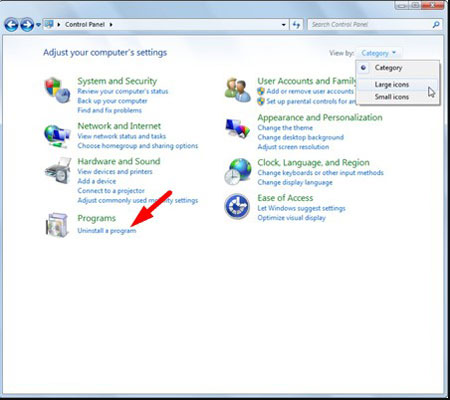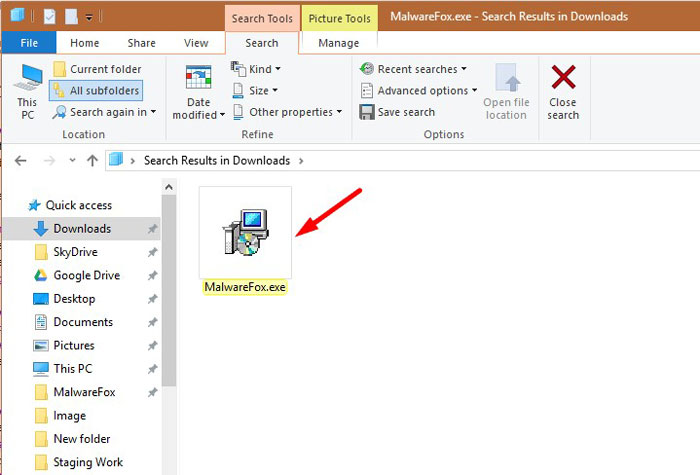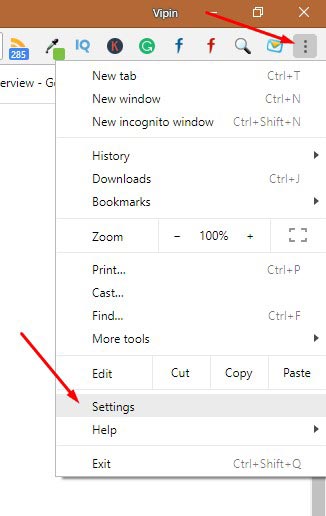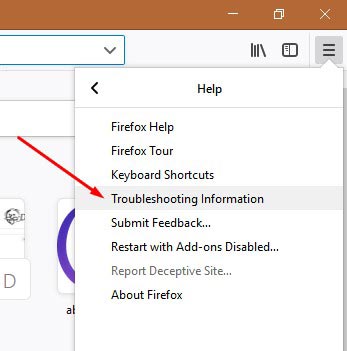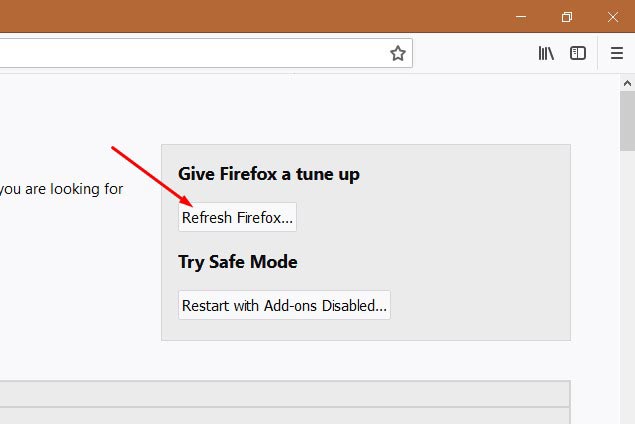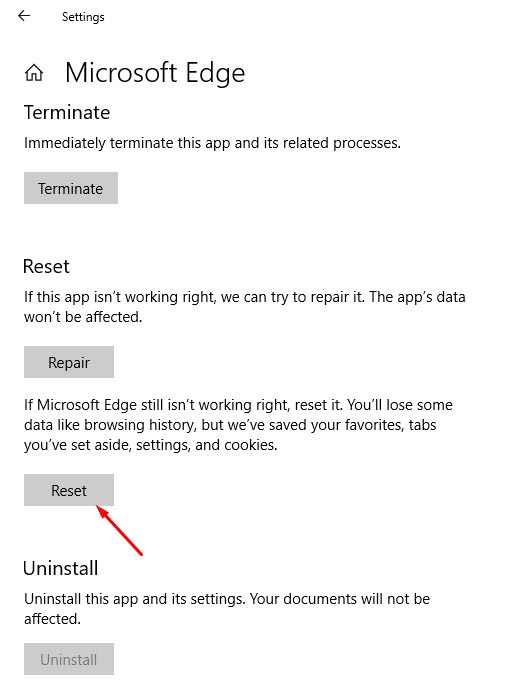Video-notification.digital pop-up is the latest form of malicious attack which tries to trick the users to subscribe to its push notification. If the user allows it to do so, it will send the unwanted advertisements straight to their browsers.
It will also prompt you to install an extension that can be another malicious program called browser hijacker. Video-notification.digital pretends to be a tool for easy video streaming. More such pop-up generating sites are – Captchareverse, Globatds, Pushwhy.

Once you click on its advertisement you can be a victim of browser hijacking or your system could get infected with other Malwares like spyware, ransomware, keylogger, or trojan.
The reason Video-notification.digital appears on your browser is that you might have visited some rogue website that has triggered adware. The internet is full of websites that add the redirection in their click event for scamming the users. You should always be attentive while surfing unknown, unverified websites.
What is Notification.digital?
Notification.digital is a scam website that tricks users into subscribing for push notifications. Its methods are inspired by social engineering. Its page displays information that encourages users to click on the allow button. This button is for push notifications. When you click on it, you allow this website to send notifications on your desktop.
These notifications appear on your desktop as pop-ups, and they keep coming. They contain links to its other pages or pages of its client. So, if you click on these pop-ups, they take you to pages filled with lots of fake and fraud product advertisements. Entertaining these ads could result in a severe infection. These websites promote spyware, ransomware, keyloggers, and trojans. So it is better to remove the Notification.digital pop-up from your PC right now.
How to Reset Permission of Notification.digital from Browsers
You should not click on the Allow button when you see such messages. If you have allowed the Notification.digital site to send notifications, then we have to remove those permissions. Follow the below instructions to reset the permissions
Chrome
- Click on Chrome’s main menu button, located in top right corner and looks like three vertical dots. Now click on “Settings“.
- You will see the Chrome's menu, scroll down to the bottom of the page then click on “Advanced“.
- Click on “Site settings“ located in the Privacy and Security section.
- Click on “Notifications“.
- Now locate Notification.digital URL and click the three vertical dots next to it, then click on “Remove” option.





Firefox
- Click on Firefox’s main menu button, located in the top right corner, represented by three horizontal lines. Then click on “Options”.
- Now click on “Privacy & Security” from the left side pane.
- Scroll down to the Permissions section and click on the “Settings…” button located next to Notifications.
- Now locate Notification.digital site, then open the drop-down menu and click on “Block”.
- In the end, click on the “Save Changes” button.





Microsoft Edge
- Click on Microsoft Edge’s main menu button, displays as three horizontal dots in the top right corner. Then select Settings.
- Scroll down a little, click on View advanced settings located under the “Advanced settings”.
- Then go to the “Website permission” section, and click on the “Manage“ button.
- Now search for Notification.digital and click the X (Clear) button to revoke the permission to send push notifications.




Android (Chrome)
- Tap on Chrome’s menu button, that look like three vertical dots. Then tap on the option labeled “Settings“.
- Now you will see the Chrome’s “Settings” menu, scroll below to the “Advanced” section and then tap on “Site Settings“.
- In the “Site Settings” menu, tap on “Notifications“.
- Now you will see the list of sites that you have “Blocked” and “Allowed” to send push notifications. In the “Allowed” section, locate the Notification.digital site, now tap on it, then tap the “Clear & reset” button that you will find in the end.
- Now chrome will display a confirmation box with the details of the actions that you are about to take. To complete the removal process, click on the “Clear & reset” button.





These Notification.digital pop-ups appears on your browser due to adware infection or malicious ads on the websites you visit. This guide is meant to remove the malware from your device, if you want to block a specific site like Notification.digital, then you can use the browser extension available for free Adblock.
The adware enters in your computer using the software bundling method. It is bundled with free or pirated software that you download from the internet. Some free software don't tell you properly that you will install an another software along with them. Later you find yourself infected with the adware. Once the adware is installed, you will be redirected to Notification.digital pop-up pages.
Below are some common signs that you have adware on your system:
- Advertisements appear in awkward places.
- The browser homepage gets changed to another URL.
- Web pages that you reguarly visit are not loading properly.
- Clicking on a link take you to suspicious website.
- You will see lots of pop-ups recommending fake updates.
- Unknown suspicious programs in your PC.
Always opt for the custom/advanced installation mode and deselect anything other than the actual program, especially recommended software that you don't need. In short, you should not install suspicious software.
How to remove Notification.digital redirect (Removal Guide)
Please perform all the steps in the correct order. If you have any questions or doubt at any point, comment down and we will try to assist you.
To remove the Notification.digital pop-up ads, follow these steps:
- STEP 1: Uninstall the malicious programs from Windows
- STEP 2: Use MalwareFox to remove Notification.digital adware
- STEP 3: Use HitmanPro to scan for malware and unwanted suspicious programs
- STEP 4: Reset the browsers to remove Notification.digital pop-up ads
STEP 1 : Uninstall the malicious programs from Windows
In this first step, we will be identifying and uninstalling the malicious software from our PC.
-
Go to “Programs and Features”.
Windows 10
- On the Start menu, type Control Panel in the Cortana search box and then select “Control Panel” from the results.
- When the “Control Panel” window opens click on the “Uninstall a program” option under “Programs” category.
Windows 8
Right-click on the Start button and select “Programs and Features”. You will directly reach to the list the of programs installed.- If there is no Programs and Features in the Start menu, then type “programs and features” into the search bar at the bottom of the Start window, then click the “Programs and Features” result.
- If you don’t see the a Start button, you are likely running Windows 8 instead of Windows 8.1. So, press the Windows key + X to open the menu instead and select “Programs and Features”.
Windows 7
- Click on Start, then click on “Control Panel”.
If you don’t see “Control Panel” here, type control panel into the search bar at the bottom of the Start window, then click the “Control Panel” result. - Once you see the “Control Panel”, click on “ Uninstall a Program” from the Programs category.
- On the Start menu, type Control Panel in the Cortana search box and then select “Control Panel” from the results.
-
Find the malicious program and uninstall it.
Now you will see the list of all installed programs in the PC, carefully observe every program and find the unwanted applications, then select it, and click the “Uninstall” button.
Known malicious programs: Juliaetta version 1.5, Wajam, 1.0.0.1, DNS Unlocker, Cinema Plus, Price Minus, SalesPlus, New Player, MediaVideosPlayers, Browsers_Apps_Pro, PriceLEess, Pic Enhance, Sm23mS, Salus, Network System Driver, SS8, Save Daily Deals, Word Proser, Desktop Temperature Monitor, CloudScout Parental Control, Savefier, Savepass, HostSecurePlugin, CheckMeUp or HD-V2.2.
Your PC may have different malicious program thus the name may not match. If you cannot find any unwanted malicious programs on your PC, then you can skip to the next step -
Follow the screen instructions to uninstall the program.
In the next screen prompt, click on Yes, and then follow the prompts to uninstall the program.
Read all screen instructions carefully during installation, because malicious programs always try to trick you in hoping that you won’t read properly.
STEP 2: Use MalwareFox to remove Notification.digital adware
MalwareFox is antimalware that works on heuristic approach to detect and remove malware from your PC. It analyzes the malware signatures as well as their behaviour. If a program acts like a malware then MalwareFox blocks it right there. It is lightweight on your system resource and finishes the scan quickly.
Its not like I am recommending you to install a costly software to remove the malware. The MalwareFox subscription charges are fairly low. But that is for a fully featured program with real-time protection capabilities. The scanning works even with the free version, though you can try the MalwareFox Premium for 14 days. Also, you don't need to remove your current antivirus, MalwareFox will work effectively without any conflicts.
-
Download MalwareFox.
You can download MalwareFox by clicking the link below.
MALWAREFOX DOWNLOAD LINK
(The above link will open a new page from where you can download MalwareFox) -
Double-click on the MalwareFox setup file.
Once the MalwareFox is downloaded, double click on MalwareFox.exe file to install it on your PC. The downloaded files are mostly saved to the Downloads folder.
You will see an User Account Control pop-up asking if you want to allow MalwareFox to make changes to your device. Click on “Yes” to proceed with the installation steps.
-
Follow the on-screen prompts to install MalwareFox.
First MalwareFox installer ask you to choose the language, select your preferend language and click on OK.
Then the MalwareFox installation Wizard appears, click on Next and follow the screen instructions to setup MalwareFox on your PC.
Once the installation is complete, MalwareFox will download the latest version and virus signatures from the server. Let it update.
-
Click on “Scan” Button.
To perform a system scan, click on the “Scan” button.
-
Wait for MalwareFox scan to complete.
MalwareFox is now scanning your computer for adware, pop-ups, browser hijackers, and other malicious programs. This process can take a few minutes, so you can do some other work while it is scanning your PC, don't worry the PC won't get slow during the scan.
-
Click on “Next”.
Once the scan has completed, you will see the list of detected threats on your PC. To remove the malware that MalwareFox has found, click on the “Next” button.
When the malware removal process is complete, you can close MalwareFox and continue with the rest of the instructions.
STEP 3: Use HitmanPro to scan for malware and unwanted programs
HitanPro works on unique cloud-based approach to detect the threats. You can use it as a second opinion malware scanner. HitmanPro also observe the behaviour active programs and checks the locations where malware normally resides. If there is a suspicious file then it upload thes file to cloud where it is scanned by Bitdefender and Kaspersky antivirus engines.
HitmanPro is available for a 30-days trail that lets you to clean the threats. After that you may need to purchase it which costs around $24.95 for 1 year single PC. If you won't upgrade then you can scan using the HitmanPro however it won't let you remove or quarntine the detected threat.
-
Download HitmanPro.
You can download HitmanPro by clicking the link.
HITMANPRO DOWNLOAD LINK
(The above link will open a new web page from where you can download HitmanPro) -
Install HitmanPro.
When HitmanPro has finished downloading, double-click on “hitmanpro.exe” if you have 32-bit Windows or “hitmanpro_x64.exe” if you have 64-bit windows, to install this program on your PC. In most cases, downloaded files are saved to the Downloads folder.
Now you will see an User Account Control pop-up asking if you want to allow HitmanPro to make changes to your device. Click “Yes” to install it on your PC.
-
Follow the screen instructions.
When HitmanPro starts you will see the start screen as shown below. Click on the “Next” button to perform a system scan.
-
Wait for the HitmanPro scan to complete.
HitmanPro will now start scanning your PC for malware. This process may take a few minutes.
-
Click on “Next”.
Once HitmanPro finished the scan, you will see a list of all the malicious programs that it found in your system. Click on the “Next” button to remove the malware.
When the process is complete, you can close HitmanPro and continue with the rest of the instructions.
(OPTIONAL) STEP 5: Reset the browser to remove Notification.digital pop-up ads
If you are still seeing Notification.digital site on your browser, then you need to reset the web browser settings to their defaults. If your issue has been solved by the above methods, then there is no need to follow this step.
Google Chrome
-
Open Chrome’s “Settings” menu.
Click on Chrome’s main menu button, located in top right corner and looks like three vertical dots. Now click on “Settings”.
-
At the bottom, click “Advanced”.
You will see Chrome’s “Settings” in a new tab. Next, scroll down to the bottom and click on the “Advanced” button.
-
Under the section “Reset,” click “Reset”.
Now you will see Chrome’s advanced settings. Scroll down to the “Reset and clean up” section. Then click on the “Reset settings to their original defaults” button.
-
Confirm by clicking “Reset”.
Now you will see a confirmation dialog, detailing the components that will be restored to their default state should you continue on with the reset process. To confirm the reset action, click on the “Reset Settings” button.
Mozilla Firefox
-
Go to the “Help” menu.
Click on Firefox’s main menu button, located in the top right corner, represented by three horizontal lines. Then click on “Help“.
-
Click “Troubleshooting Information”.
Now click on “Troubleshooting Information“.
If you’re unable to access the “Help” menu, then you can type about:support in the address bar and press enter to directly open troubleshooting page. -
Click on “Refresh Firefox”
Now click on the “Refresh Firefox” button which is on the upper-right corner of the “Troubleshooting Information” page.
-
Confirm.
Now you will see the confirmation message telling you the action you are about to take. Click on the “Refresh Firefox” button to confirm the action.
-
Click on “Finish”.
Firefox gets closed and its settings will reset. Then it will display the list with information that was imported. Now click on the “Finish“.
Internet Explorer
-
Go to “Internet Options”.
Open Internet Explorer browser, click on the gear icon in the top right part of the browser, now select “Internet Options“.
-
Go to “Advanced” tab, then click “Reset”
In the “Internet Options”, click on the “Advanced” tab, then select the “Reset” button.
-
Click on “Reset”.
In the “Reset Internet Explorer settings” window, click on the “Delete personal settings” checkbox, then click on the “Reset” button.
-
Click on “Close”.
Once the Internet Explorer completes all the action, click on the “Close” button.
Now you need to restart the Internet Explorer browser.
Microsoft Edge
-
Go to “Apps and Features”.
Right-click on the Start button and select “Apps and Features“. It will open the list of all installed programs.
-
Find Microsoft Edge from the list, then click “Advanced Options”.
You will see the list of all programs in your PC. Scroll through the list and locate “Microsoft Edge”, select it, and then click on the “Advanced options”.
-
Click on “Reset”.
Now you will see the “Advanced Options”. Find the “Reset” section, as shown in the picture below. Then click on the “Reset” button.
Your computer should now be clean, and you will not see the Notification.digital pop-up ads in your browser. If you are still facing problems while trying to remove Notification.digital adware then please comment down your problem. We will try to help you as much as possible.






